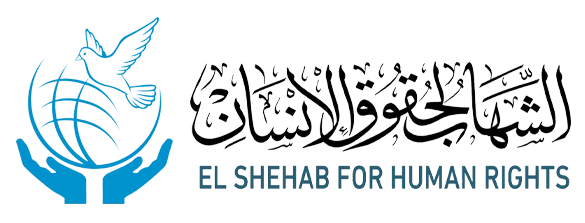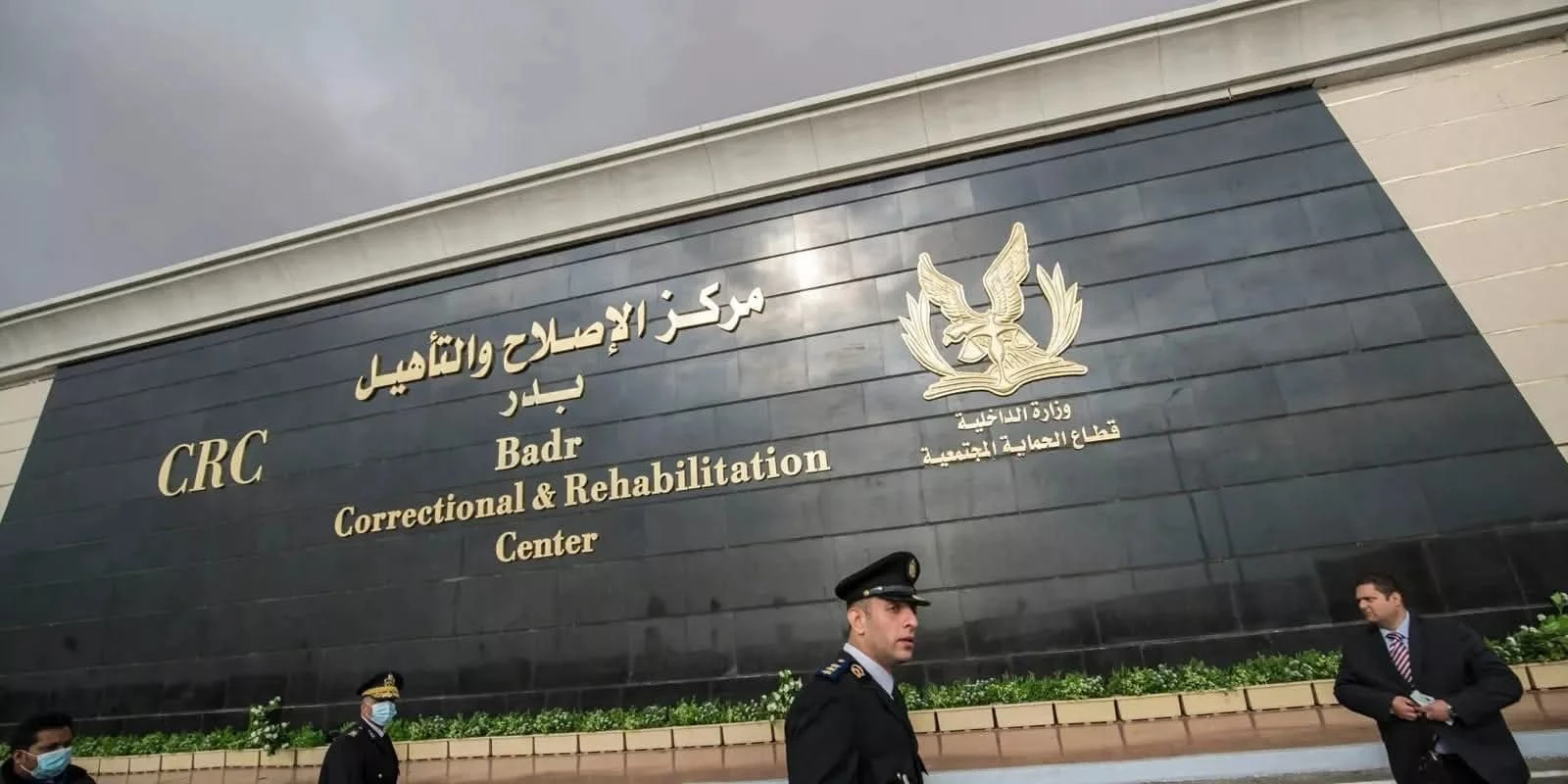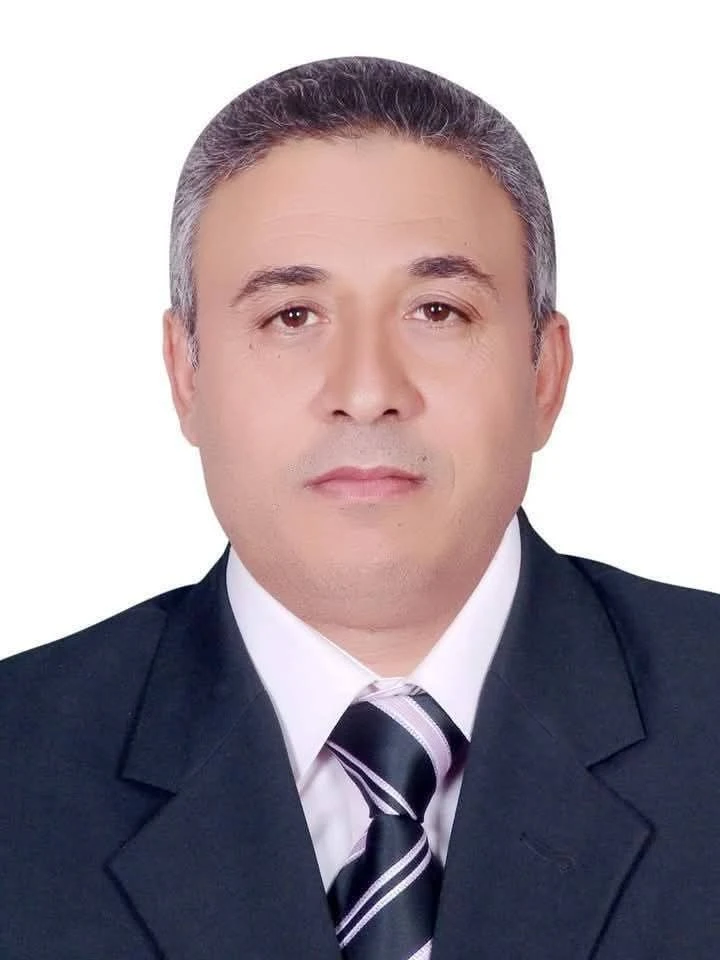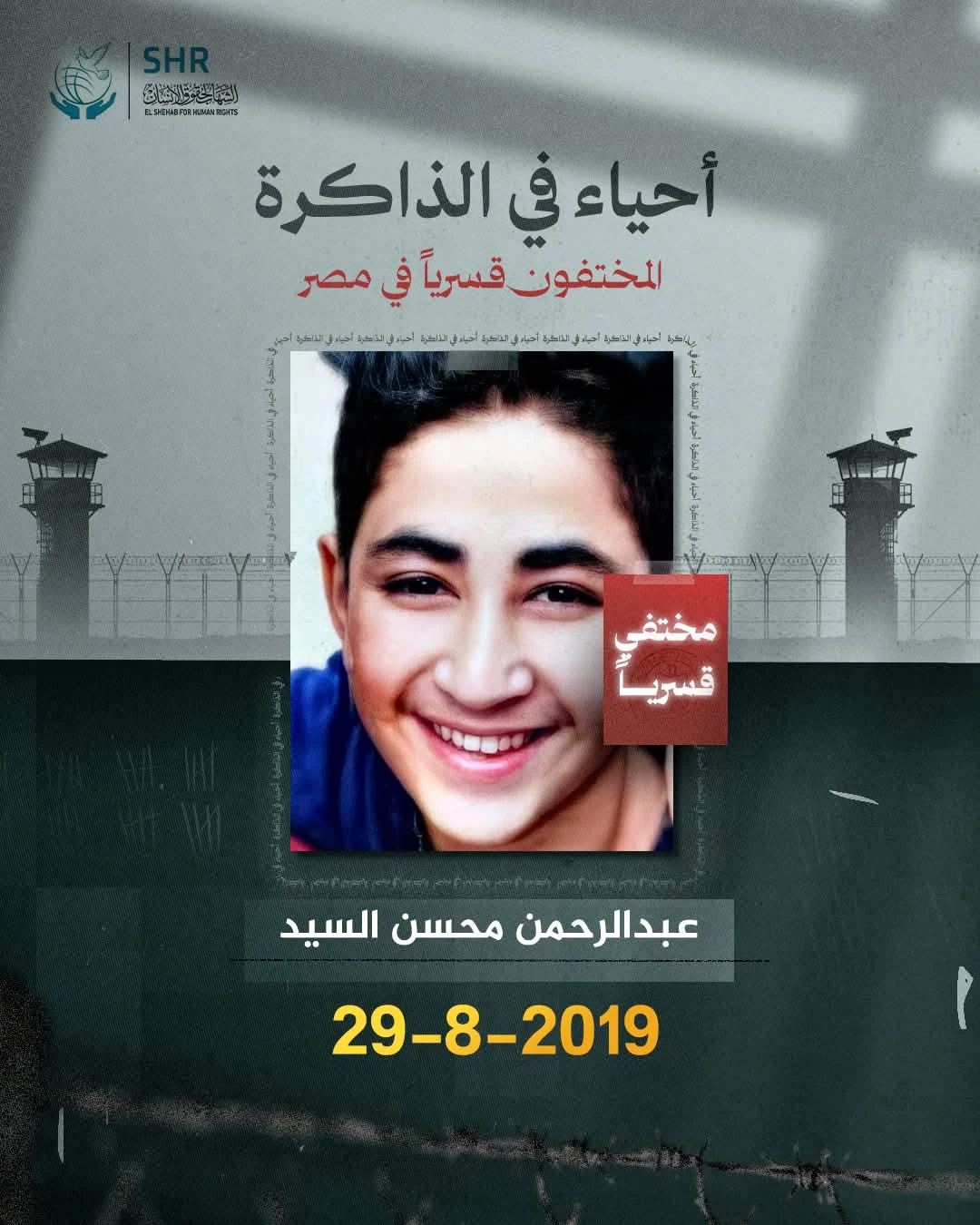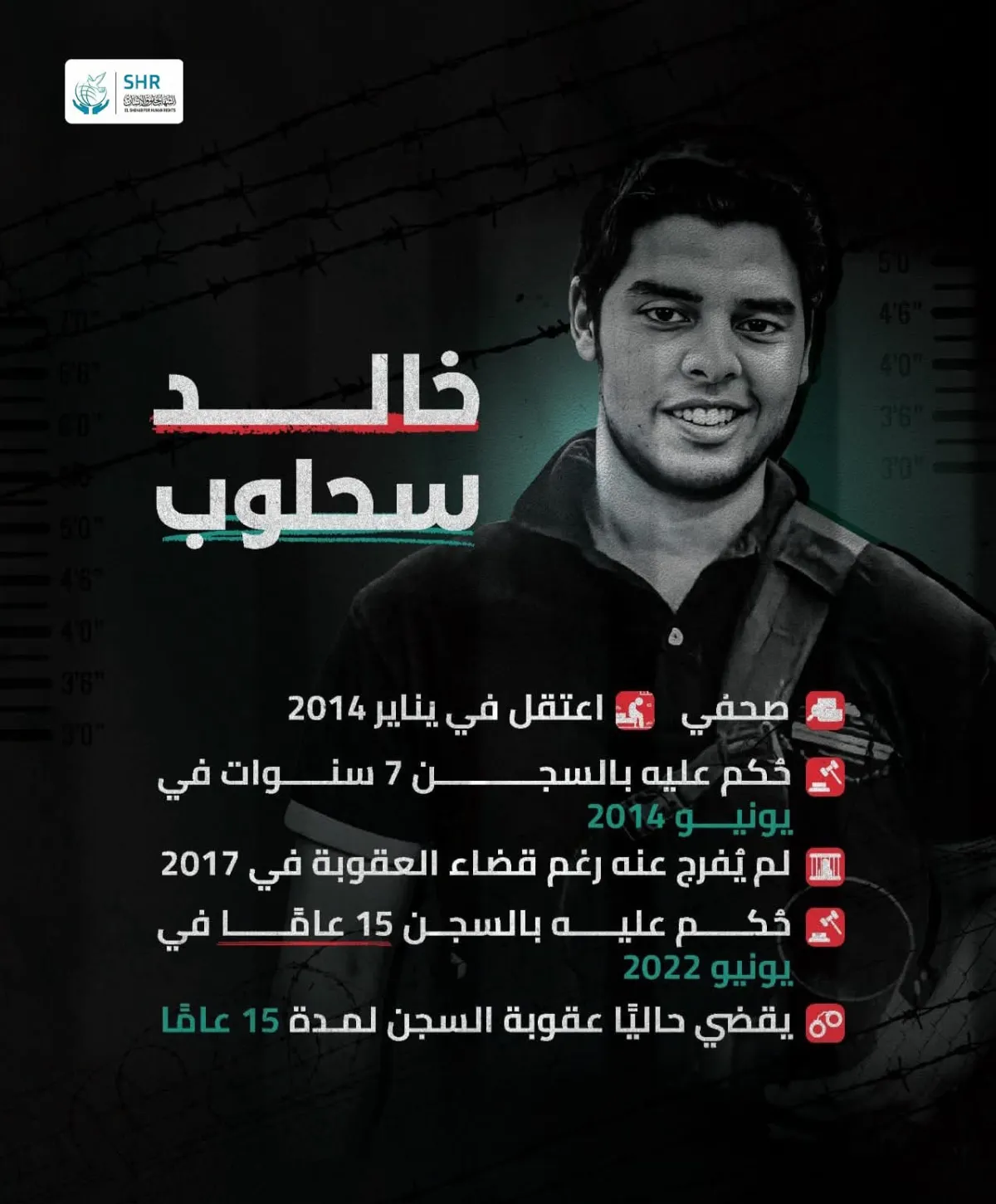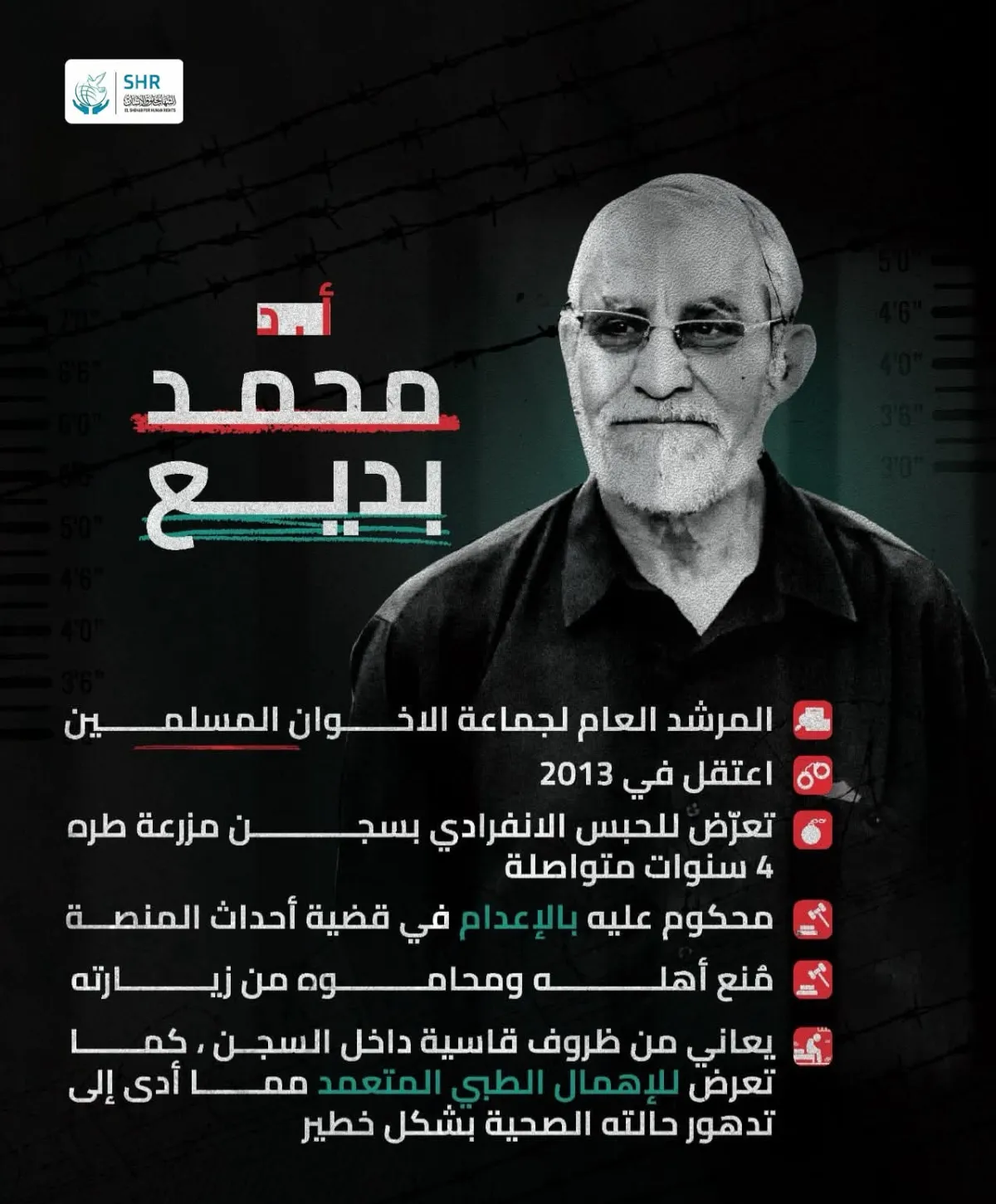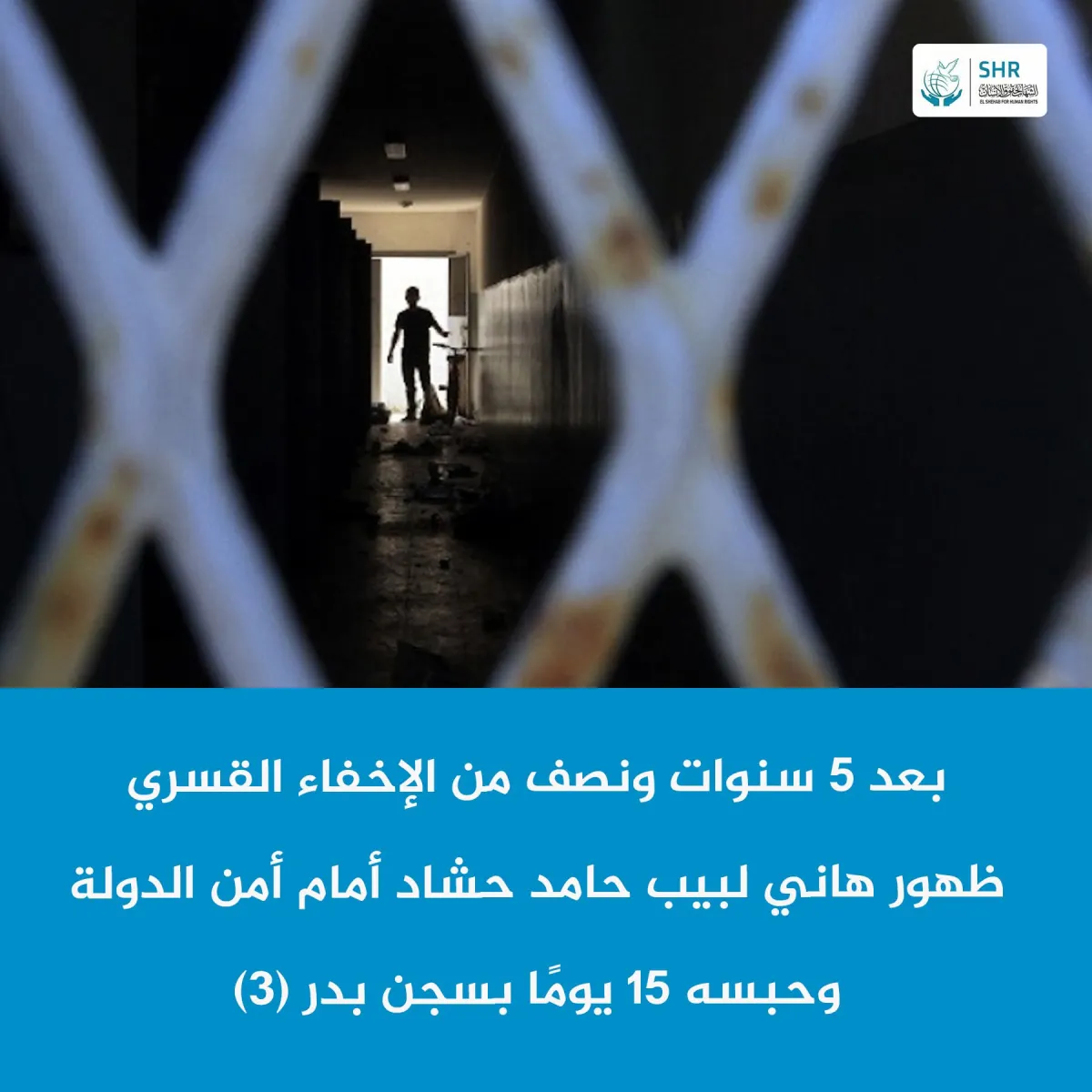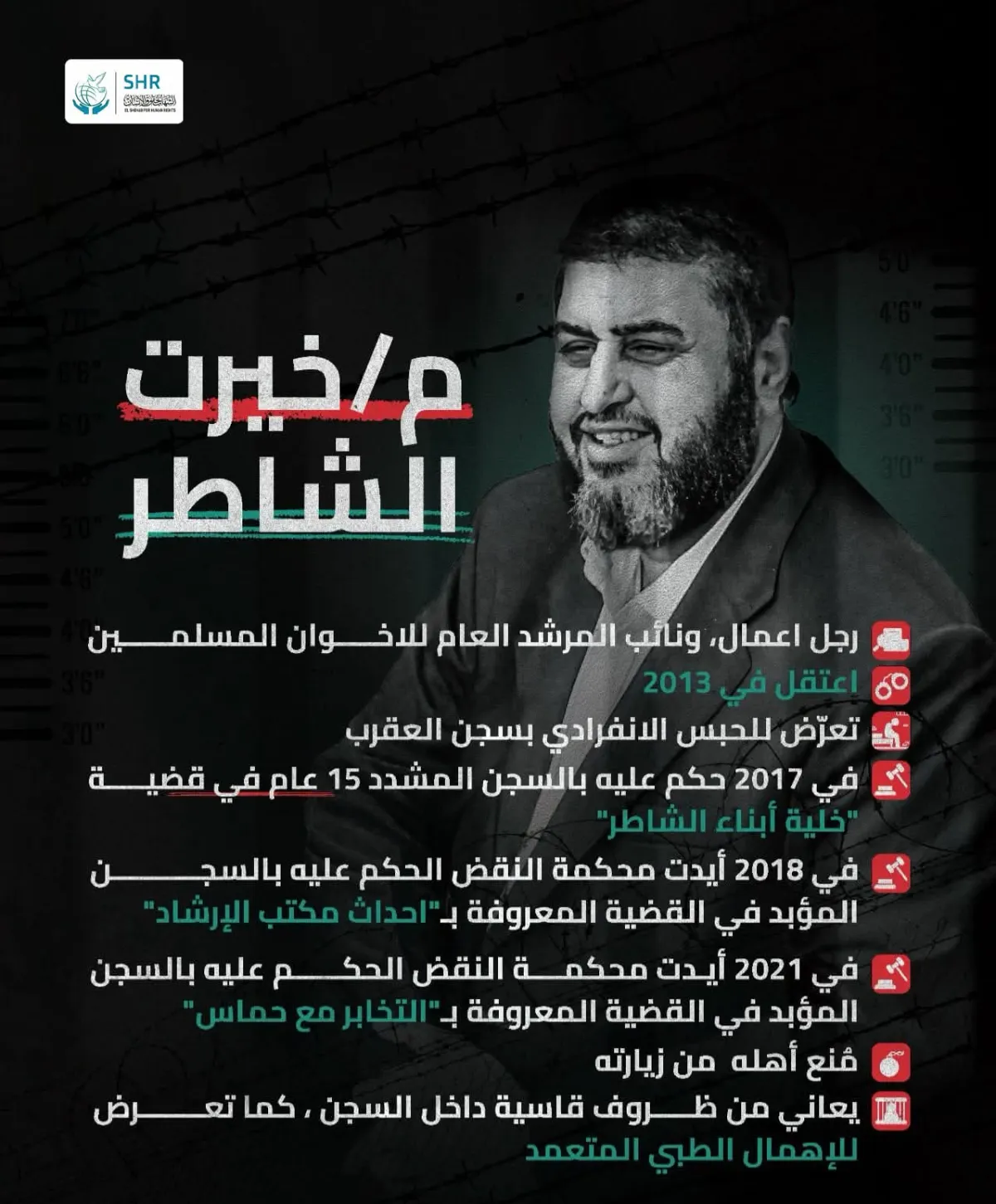Statement on the Deliberate Cover-Up of Severe Violations Inside Badr 3 Prison in Egypt
Human rights organizations are closely monitoring with great concern what is happening in Badr 3 Prison east of Cairo, where detainees – most of whom are prisoners of conscience and political opponents – are subjected to severe violations that threaten their lives and physical and psychological safety. This prison has become a stark example of systematic collective punishment, far removed from any legal or humanitarian standards, and has turned into a tool for slow execution.
Despite some news leaking in recent weeks about repeated suicide attempts and hunger strikes, the authorities quickly took measures to impose complete secrecy on what is happening inside the prison, as news has been entirely cut off for more than a week, and the families of the detainees no longer have any information about their children. The isolation of the prison has also increased after detainees were prevented from attending their trial sessions, even though they were held in the court located within the security complex adjacent to the prison, with the authorities claiming "it was impossible to bring them," which raises fears for their lives and indicates that systematic cover-up has become part of the repression policy inside Badr 3 Prison.
Information from inside the prison indicates a troubling increase in suicide attempts. Surgeon Dr. Said Haikal, as well as Amin Al-Sayrafi and Khaled Said Morsi (the nephew of the late President Mohamed Morsi), and Dr. Abdullah Shahat have made repeated suicide attempts due to despair and deteriorating conditions. Engineer Asaad Al-Sheikha also attempted suicide after swallowing a large quantity of medication following a deterioration in his health due to a hunger strike, and he was rescued with difficulty amid a lack of appropriate medical care. Dr. Mohamed Beltagy fainted in his cell, and his health condition remains unknown afterward. Dr. Ahmed Aref was transferred to the clinic in critical condition after his blood sugar level dropped to dangerous levels, and he confirmed his continued hunger strike until a visit from an independent human rights committee.
Among the most tragic cases, detainee Khalil Al-Aqeed attempted suicide by violently cutting the veins in his hand, requiring surgical stitching with 36 stitches. Human rights lawyer Mohamed Abu Harbira has faced serious threats of being exiled to the New Valley Prison under conditions that could endanger his life.
The number of detainees who have attempted suicide since the beginning of the recent escalation inside Badr 3 Prison has reached at least sixteen, some of them more than once. The health condition of several other prominent political figures, such as Bassem Awad, Khaled Al-Azhari, Mohamed Saad Aliwa, and Osama Yassin, is also deteriorating, without being allowed to receive appropriate medical care or transfer to civilian hospitals.
Recently, it has been documented that security authorities have made changes in the leadership responsible for managing Badr 3 Prison, in a clear attempt to control the leakage of information related to severe violations. However, this step has not led to an improvement in the conditions of the detainees; rather, it has been accompanied by greater tightening of isolation, which reinforces fears that the goal is not reform but rather to tighten the cover-up and conceal violations. The signing organizations affirm that changing personnel does not exempt the Egyptian state from its legal and criminal responsibility for these violations, but rather clarifies that the violations are part of a systematic institutional policy and not individual transgressions.
Testimonies indicate that the prison administration employs systematic methods of collective punishment to humiliate detainees, as they have been deprived of exercise and natural ventilation, their personal belongings confiscated, and kept for long periods in cramped cells with strong lighting and surveillance cameras around the clock. These conditions are not merely administrative neglect but are deliberate tools for psychological and physical exhaustion, grossly violating human dignity and prohibited by the minimum standard rules for the treatment of prisoners (Mandela Rules).
Moreover, the policy of depriving medical treatment, preventing family visits, and stripping cells of basic necessities represents a form of torture and cruel treatment prohibited by international law. This pattern of violations reflects a clear intent to use detention conditions as a collective punitive weapon, amounting to inhumane treatment that is criminalized by the Convention Against Torture.
These documented incidents through multiple testimonies from inside the prison and from families and lawyers reveal that what is happening is not individual incidents but a systematic policy based on complete isolation, deprivation of basic rights, and leaving detainees to the fate of medical neglect and suicide. The authorities' deliberate concealment of news and prevention of attendance at court sessions further enhances fears of more serious violations that could lead to death under torture or as a result of deliberate medical neglect.
The signing organizations condemn these violations and hold the Egyptian authorities – led by the Ministry of Interior, the National Security Agency, and the Public Prosecutor – fully responsible for the lives and physical and psychological safety of the detainees. They demand an independent and transparent investigation into the conditions of detention, the allowance of family visits and legal communications, the immediate transfer of critical medical cases to civilian hospitals, and the end of the deadly isolation policy, enabling detainees to exercise their legally and constitutionally guaranteed rights. They affirm that these demands are not political or exceptional but are legal obligations that Egypt must fulfill under the Convention Against Torture and the Mandela Rules.
The organizations also call on the international community, including the United Nations, relevant international mechanisms, the European Union, and governments supporting human rights, to take urgent action to pressure the Egyptian authorities to stop these violations, allow independent visits to monitor conditions inside the prison, and ensure the protection of detainees' lives from imminent danger. They specifically demand the activation of special United Nations mechanisms, including the Special Rapporteur on Torture, the Special Rapporteur on the Situation of Human Rights Defenders, and the Working Group on Arbitrary Detention, to investigate these violations and hold the Egyptian authorities accountable for them.
The continuation of these repressive policies warns of an impending humanitarian disaster inside Badr 3 Prison, which could lead to mass deaths or repeated suicides. Urgent international intervention is no longer an option but a pressing humanitarian duty.
The signing organizations
Committee for Justice
Al-Shehab Center for Human Rights, London
Arab Media Freedom Monitor
Arab Foundation for Supporting Civil Society and Human Rights
Najda for Human Rights
Egyptian Commission for Rights and Freedoms
Al-Nadeem Center
Dfatermasr
Their Right – To Defend Prisoners of Conscience
Egyptian Coordination for Rights and Freedoms
Free Voice Organization for Human Rights
Human Rights Monitor
EFDI International
Refugee Platform in Egypt
